Advertisements
Advertisements
प्रश्न
Here are the stories of the two boys. One student reads the story of Shravan Kumar and the second student reads the story of Narendra Kumar. After reading the story, each student completes bis or her half of the table in Question 3.
SHRAVAN KUMAR
His day begins when most other people's day ends. Thirteen-year old Shravan Kumar works in a tea shop on Delhi's Bahadur Shah Zafar Marg, where several newspaper offices are situated. His work begins around seven in the evening when he starts preparing samosas, coffee and tea. He carries them to several offices, does the dishes, and goes around collecting his money well into the night. Around six in the morning, when all the newspapers are despatched for distribution and the press employees return home, he prepares his food, takes a bath and goes to bed.
Shravan is an orphan who crune to Delhi from his village in search of work. His father kept a shop, but was tricked out of it by a deceitful uncle. Despair drove him to alcohol and grunbling, and he died of a stroke soon after.
Shravan worked in a tea shop in his village for a while. "When I first began washing other people's cups and glasses", he recalls, "I used to feel very bad, I would cry."
Shravan moved to the more lucrative environs of Delhi, where his elder brother Shatrughan had preceded him. Ajob in a shop selling ice was his first taste of big city life. His mother crune to visit him in Delhi, but she fell ill and died soon after. "That was two or three years ago. I don't remember exactly when," the little boy says. Soon, Shravan lost his first job. His employer still owes him Rs 500.
Following a brief spell of unemployment and a short spell as an assistant at a car park, he joined the tea shop where he is presently employed. The ruthlessness and loneliness of the world has left him shattered. "I think I run all alone in this world," he says despondently.
Of the Rs 300 that he earns every month, he deposits Rs 200 in the bank. His bank balance stands at Rs 2000, he says proudly. Survival is his immediate aim but there is a larger objective towards which Shravan is working. He intends to retrieve the land that was mortgaged by his father. Already Shravan and Shatrughan have paid back the loan of Rs 8000 - only the interest remains to be paid.
Shravan was a dedicated lotte:ry buyer at one time; until he realized that it was adding nothing to his income. The cinema remains a favourite form of entertainment - he even wakes up early to see the noon show. "I have no friends here. Who keeps awake late at night and sleeps during the day? I miss my village. There, I used to play gully danda and marbles and I had a lot of friends. When I went to the village last year, I met them. They are still studying and playing games. I want to join them, but it is a question of survival for me."
Sharvan's mother wanted him to own a big shop - "like the one his father had owned," he says wistfully. He dreams of fulfilling her wish. He dreams of getting back their mortgaged land, and returning to the village for good, "I like being in my village. I like the films and the glitter of Delhi, but I prefer the greene:ry, the trees, and the fields of my village." Maybe the grit and intelligence he has shown, alone and friendless, in facing a hostile world, will also win for him his heart's desire.
NARENDRA KUMAR
Narendra Kumar, a thirteen year old Kendriya Vidyalaya student, was interviewed by The Illustrated Weekly of India. Read what he says about himself.
Interviewer : Hello, Narendra!
Narendra : Hello!
Interviewer : Congratulations! Narendra. I saw your photograph in the newspaper last week, when you won the Soviet Land Nehru Award for drawing and painting. Our readers are anxious to know more about you.
Narendra : Thank you, Sir. I think I was just lucky to get the award. The competition is held every year in my school and a large number of students take part in it.
Interviewer : That's good, very good. It's evident that your school encourages students to take part in various activities.
Narendra : Oh yes. Our teachers -especially my Art teacher, Mr. V. Sinha - gives us a lot of encouragement. My parents have encouraged me a lot, too.
Interviewer : When did you start painting?
Narendra : When I was three, I was attending the Shishu Vihar Nursery School. My teacher gave me a picture of a big kite one day. The picture was beautiful and that very day I asked my father to buy me some crayons and drawing paper... Soon my room was full of crayons and paper! I kept drawing whenever I found time. I now have a mini art room of my own at home!
Interviewer : That's great, really great! Do you want to become an artist when you grow up?
Narendra : No. Drawing and painting are just hobbies, which give me a great deal of pleasure. I want to become a police officer when I grow up. That's the only thing I've ever wanted to be.
Interviewer : Is that because your father is a police officer?
Narendra : Yes, maybe. I've been watching my father and other policemen for a very long time. I suppose I want to be like him!
Interviewer : Do you feel you have the qualities that a good police officer needs?
Narendra : Yes, I think so. A good police officer needs to be physically fit and mentally alert. I'm trying my best to grow into a healthy young man. I'm a member of the local sports club. I play tennis in the evenings and I also swim regularly.
Interviewer : How do you find time for all these activities?
Narendra : Well, I suppose I'm busy the whole day. Immediately after school I like to paint or play. I study before dinner and usually get to bed at about 10 o'clock.
Interviewer : Thank you, Narendra. It's been good talking to you. We wish you success.
Narendra : It's been a pleasure
उत्तर
Summary of the extract :
SHRAVAN KUMAR – Shravan Kumar is a thirteen year old boy working in a tea-shop. His family’s misfortune has driven him to’migrate from his village in Bihar to Delhi. His sole aim is to survive in this world. He had had many bad experiences of this ruthless world. He is an orphan and often feels the loneliness. Most part of his day is spent in doing menial labor. Whenever he gets time he loves to watch movies. His ambition is to go back to his village and restore the lost pride of his family.
NARENDRA KUMAR – Narendra Kumar is a thirteen year old Kendriya Vidyalaya student. His father is a police officer. He has a comfortable life. Most of his time is devoted to study. In his spare time he likes to paint, swim and play tennis. His ambition is to become a police officer, like his father.
APPEARS IN
संबंधित प्रश्न
List common dilemmas that teenagers face involving the choice of one or more “roads”. Give examples of “roads” that you must travel (e.g. facing peer pressure, choosing friends, observing rules laid down by school and parents, acting on your own values).
Answer the following question briefly.
Who is better business person - Juliette or Gaston? substantiate your view with
examples from the text.
Answer the following question briefly.
Why was the convict sent to prison? What was the punishment given to him?
Teacher/ Student to read out the first part given . After you listen, answer the following questions :
Nuclear war has broken out in Europe. A school in England has been evacuated by airplane to an unknown destination. While flying over a tropical region, the plane is shot down and it bursts into flames , but the body of the plane containing the passengers falls to earth safely. A few boys (Ralph, Jack, Roger, Simon, Piggy and others) manage to scramble out. They have landed on an unnamed island which has coral reefs, beaches, caves and fruit trees. The novel tells their story.
a. What do you think happened to the boys and the plane they were flying in?
b. What happened to the other part of the plane?
c. How did Ralph attract the attention of the other boys?
d. What were the names of the first three boys who came to the meeting?
e. Why do you think the groups of boys were marching in two parallel lines?
f. Do you think there were any adults on the island? Why/ Why not?
g. Can you predict what happened to the boys next? For example, how did they organise themselves? What about shelter and food?
Look at the following pictures/diagrams. Fill in the blanks with an appropriate sentence/phrase, using suitable future time reference. The first one has been done for you as an example:
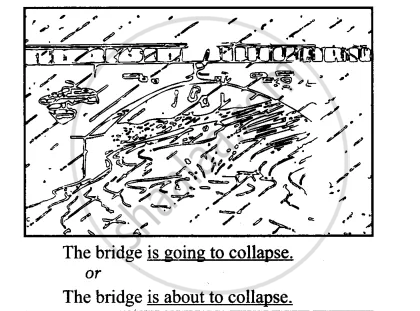
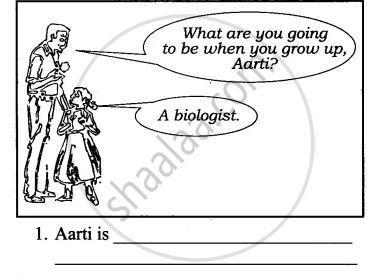

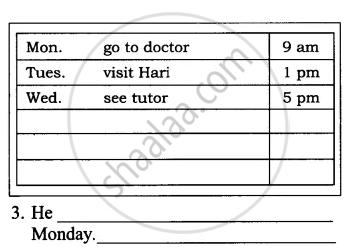
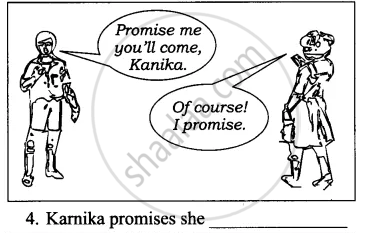
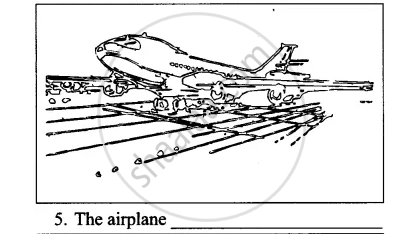
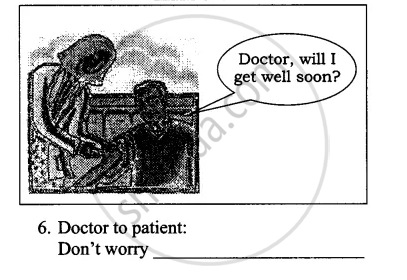
What are the ten different ways in which you can use a ruler other than its regular use? List your answer below.
e.g. You can use it to dig holes.
The following are the lyrics of a famous song. Complete it by filling in the missing letters (mostly vowels).
There c_m_s a time.
When we h __ d a certain call
When the w __ ld must come t_g_th_r
As one
There are p _ _ple d_ing
Oh and it's time
To l_nd a h_nd to l_fe
The gr __ test gift of all
Wec_n't go on 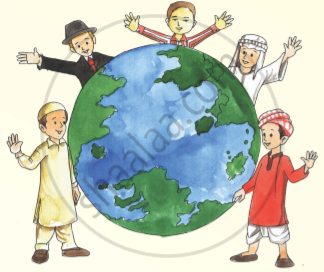
Pr_t_nding day by day
Th_t s_me_ne, somewhere
Will s __ n make a change
We are all a p __ t of
God's gr __ t big f_m_ly
And thetr_th,youknow
L_ ve is all we n __ d
W_ are the world
We are the ch_ldr_n
We are the _nes
To m __ e a br ___ ter day
So l_t's st __ t g_ving
There's a ch __ ce we're m_king
We're s_ving our own l_ves
It's tr __ wemake a b_tterday
J_st y __ andme
W _11, send them your h __ rt
So they kn__ that s_me_ne cares
And th __ r lives wll be str_nger
And fr __
As G_d has sh_wn us
By t __ ning stone to br __ d
And so we _11 must
L-nd a h_lping h_nd
We are the world ...
We're d_wn and __ t
And there s __ ms no h_pe at all
Butify __ justbel __ ve
There's no w_y we can f_ll
Ohyes, let's r __ lise
That ch_nge can only c_me
When we st_nd t_g_ther
As one
We are the world ...
What do the following phrases mean?
• We are the children
• There's a choice we're making.
We're saving our own lives ...
• Well, send them your heart
So they know that someone cares ...
• Change can only come
When we stand together
As one ...
20 years from now, one of your class-mates becomes a famous sport-star. You have been asked to write his/her biography. Collect the necessary biographical details. Use your imagination to create his / her achievements in the sport concerned, and write the biography. Remember to write it in chronological order of events, and use the simple past tense as far as possible.
Edit the following magazine article about youth in sport.
The Great National Sports Talent Search (a) consist of workshops and tournaments arranged in (b) any different parts of (c) a country. The talent scouts’ aim (d) are to look out for local talent in the age range of eight to eighteen years. Thus, it would be far (e) wise if young sportswomen and men (f) were help so that they have plenty of time to develop their talent. Sports academies normally only (g) having students whose talents (h) is already recognized. If India does not invest in sports it can not hope to perform well at the International level.
| (a) (i) consisted (ii) consists (iii) is consisted (iv) has consisted |
(b) (i) much (ii) few (iii) little (iv) many |
(c) (i) the (ii) these (iii) an (iv) some |
(d) (i) is (ii) being (iii) has been (iv) been |
| (e) (i) wisest (ii) wiser (iii) as wise as (iv) too wise |
(f) (i) were helped (ii) were being helped (iii) are helped (iv) helped |
(g) (i) are having (ii) owning (iii) have (iv) has |
(h) (i) are (ii) has been (iii) are being (iv) have been |
